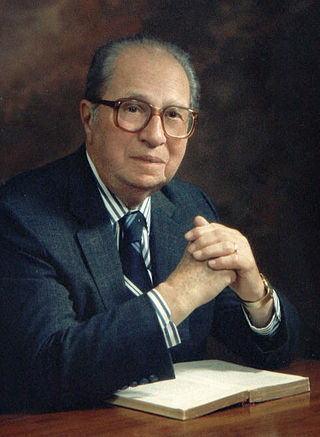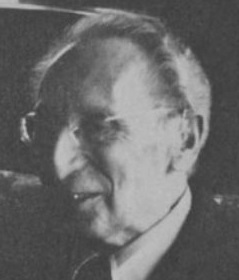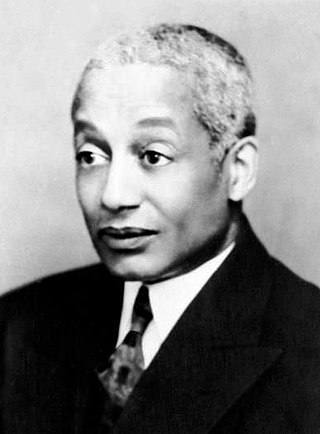Related Research Articles

Mortimer Jerome Adler was an American philosopher, educator, encyclopedist, and popular author. As a philosopher he worked within the Aristotelian and Thomistic traditions. He taught at Columbia University and the University of Chicago, served as chairman of the Encyclopædia Britannica board of editors, and founded the Institute for Philosophical Research.

Edmund Lee Gettier III was an American philosopher at the University of Massachusetts Amherst. He is best known for his short 1963 article "Is Justified True Belief Knowledge?", which has generated an extensive philosophical literature trying to respond to what became known as the Gettier problem.
Monroe Curtis Beardsley was an American philosopher of art.
Peter Achinstein is an American philosopher of science at Johns Hopkins University.
David Charles Stove was an Australian philosopher whose writings often challenged prevailing academic orthodoxy. He was known for his critiques of postmodernism, feminism, and multiculturalism.
Gilbert Harman was an American philosopher, who taught at Princeton University from 1963 until his retirement in 2017. He has published widely in philosophy of language, cognitive science, philosophy of mind, ethics, moral psychology, epistemology, statistical learning theory, and metaphysics. He and George Miller co-directed the Princeton University Cognitive Science Laboratory. Harman has taught or co-taught courses in Electrical Engineering, Computer Science, Psychology, Philosophy, and Linguistics.

Herbert Feigl was an Austrian-American philosopher and an early member of the Vienna Circle. He coined the term "nomological danglers".
John Elof Boodin was a Swedish-born American philosopher and educator. He was the author of numerous books proposing a systematic interpretation of nature. Boodin's work preserved the tradition of philosophical idealism within the framework of contemporary science. Boodin also focused on the social nature of human behavior believing an understanding required an appreciation of individual participation in social life and interpersonal relationship.
Daniel A. Dombrowski is an American philosopher and professor emeritus of philosophy at Seattle University. Since 2009 he has served as Editor of the journal Process Studies, and is a past president of the Metaphysical Society of America (2018–19).
James Ferguson Conant is an American philosopher at the University of Chicago who has written extensively on topics in philosophy of language, ethics, and metaphilosophy. He is perhaps best known for his writings on Wittgenstein, and his association with the New Wittgenstein school of Wittgenstein interpretation initiated by Cora Diamond.

Alain LeRoy Locke was an American writer, philosopher, educator, and patron of the arts. Distinguished in 1907 as the first African-American Rhodes Scholar, Locke became known as the philosophical architect —the acknowledged "Dean"— of the Harlem Renaissance. He is frequently included in listings of influential African Americans. On March 19, 1968, the Rev. Dr. Martin Luther King Jr. proclaimed: "We're going to let our children know that the only philosophers that lived were not Plato and Aristotle, but W. E. B. Du Bois and Alain Locke came through the universe."

Philip Ellis Wheelwright was an American philosopher, classical scholar and literary theorist. He was born in Elizabeth, New Jersey, the son of a stockbroker, and died in Santa Barbara, California. Wheelwright was educated at Princeton University, with a B.A. in 1921 and a Ph.D. in 1924 with his dissertation "The Concepts of Liberty and Contingency in the Philosophy of Charles Renouvier," the French Kantian philosopher who so influenced William James.

American philosophy is the activity, corpus, and tradition of philosophers affiliated with the United States. The Internet Encyclopedia of Philosophy notes that while it lacks a "core of defining features, American Philosophy can nevertheless be seen as both reflecting and shaping collective American identity over the history of the nation". The philosophy of the Founding Fathers of the United States is largely seen as an extension of the European Enlightenment. A small number of philosophies are known as American in origin, namely pragmatism and transcendentalism, with their most prominent proponents being the philosophers William James and Ralph Waldo Emerson respectively.
Geoffrey Hellman is an American professor and philosopher. He is Professor of Philosophy at the University of Minnesota in Minneapolis, Minnesota. He obtained his B.A. (1965) and Ph.D. (1972) degrees in philosophy from Harvard University. He was elected to the American Academy of Arts and Sciences in 2007.
Tulane Studies in Philosophy was a peer-reviewed academic journal, formerly published by the philosophy department at Tulane University in New Orleans. The journal published original articles by invited contributors and members of the Tulane philosophy department. Notable contributors included Lewis S. Ford, Charles Hartshorne, John Lachs, Andrew Reck, and Sandra B. Rosenthal. Established in 1952 by James Feibleman, the journal was published annually until his death in 1987. All volumes are available online from the Philosophy Documentation Center.

Elizabeth Secor Anderson is an American philosopher. She is Arthur F. Thurnau Professor and John Dewey Distinguished University Professor of Philosophy and Women's Studies at the University of Michigan and specializes in political philosophy, ethics, and feminist philosophy.
2019 in philosophy
Peter Bertocci (1910–1989) was an American philosopher and Borden Parker Bowne professor of philosophy, emeritus, at Boston University. He was a president of the Metaphysical Society of America.
Jeffrey Raymond Sebo is an American philosopher. He is clinical associate professor of environmental studies, director of the animal studies MA program, and affiliated professor of bioethics, medical ethics, and philosophy at New York University. In 2022, he published his first sole-authored book, Saving Animals, Saving Ourselves.
2021 in philosophy
References
- ↑ "Andrew J. Reck Obituary" . Retrieved July 1, 2021.
- ↑ "Andrew J. Reck". www.press.uchicago.edu.
- ↑ "Reck, Ph.D., Elizabeth (Betty) Lassiter". Winston-Salem Journal.